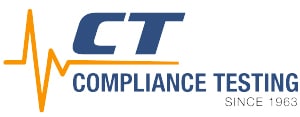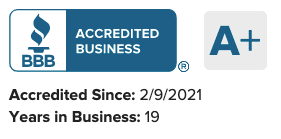Since the first Raspberry Pi was released in 2012, this tiny computer has become one of the most popular in the world. Raspberry Pi single-board computers are used in a large range of devices, from hobbyist creations to consumer electronic products.
If you’ve used a Raspberry single-board computer or microcontroller chip in your device, you likely understand the importance of FCC compliance.
In the United States, the Federal Communications Commission, or FCC, regulates all devices that can emit radio frequency (RF) energy. Devices need to be authorized by the FCC in order to go on sale, and the Raspberry Pi (and devices that use it) are no exception.
Currently, all RaspBerry Pi devices that are available in the United States have received FCC certification and have FCC IDs.
However, if your device contains a Raspberry Pi SBC or microcontroller board, it will need to undergo FCC testing and receive equipment authorization on its own to be compliant with all FCC regulations, including FCC Part 15.
Below, we’ve shared the latest FCC certification information for the current range of Raspberry Pi devices sold in the United States. We’ve also explained what you need to know if you use a Raspberry Pi SBC or microcontroller board in your device and want to sell it in the USA.
To ask our engineers and compliance experts about FCC testing and certification, or to request a free quote for your device, you can contact us online or call us at 866-540-5287.
Is the Raspberry Pi FCC Certified?
Yes, all Raspberry Pi devices currently on the market are FCC certified. This means they have been tested in an accredited testing lab, found to operate within the FCC’s limits for emissions and immunity, and received equipment authorization from the FCC.
This means that the Raspberry Pi single-board computer itself is already approved by the FCC and has its own FCC ID.
You can find the FCC ID for a Raspberry Pi SBC on the device’s packaging. Each FCC ID can be verified online using the FCC’s ID search tool.
FCC Certified Raspberry Pi Devices
Currently, the following Raspberry Pi devices have completed the certification process and have equipment authorization from the FCC:
- Raspberry Pi 5 (FCC ID: 2ABCB-RPI5)
- Raspberry Pi 4 & 4 B (FCC ID: 2ABCB-RPI4B)
- Raspberry Pi 3 & 3 B (FCC ID: 2ABCB-RPI3BP)
- Raspberry Pi 2 (FCC ID: 2ABCB-RPIZ2)
- Raspberry Pi Model B (FCC ID: 2ABCB-RPI21)
- Raspberry Pi Zero, Zero 2 & Zero W (FCC ID: 2ABCB-RPI0W)
- Raspberry Pi 400 (FCC ID: 2ABCB-RPI400)
- Raspberry Pi Pico (FCC ID: 2ABCB-PICOW)
Do Devices That Use Raspberry Pi Need FCC Testing?
Yes, any devices that use a Raspberry Pi SBC as part of their design will need to be tested for FCC compliance before going on the market. Most Pi-based devices can complete testing and equipment authorization through a process called Supplier’s Declaration of Conformity (SDoC).
Why is this required if the Raspberry Pi itself is already authorized by the FCC? It comes down to how the FCC assesses products for compliance, as well as how the integration of a Pi device into a finished design can affect its emissions characteristics.
Under the FCC Part 15 rules, any product capable of producing radio frequency interference, or RFI, is required to demonstrate that it operates within the emissions and immunity limits set out by the FCC.
By integrating a Raspberry Pi or similar single-board computer into a new device, the emissions characteristics of the device may change. This means that despite using a certified device in its design, the new Pi-based device may produce a greater amount of emissions.
The FCC requires that the final product, as it will go on sale, completes FCC testing through an approved lab and receives equipment authorization. This means that testing is required even if your device uses pre-certified internal components, such as Raspberry Pi SBC.
If you’ve designed a device that uses a Raspberry Pi single-board computer or similar internal components, contact us and our team can inform you about the testing requirements and FCC compliance process.
How to Get FCC Authorization for Your Pi Device
- Consider pre-compliance testing. In some cases, you may want to conduct informal EMC testing before you test your device in a lab for FCC compliance. Early testing can help you identify and correct issues early in the design process.
- Complete lab testing for your device. To receive FCC equipment authorization, you will need to test your device in an accredited lab. Testing involves measuring radiated and conducted emissions from your device, as well as your device’s EMI immunity.
- Prepare your device’s documentation. Following testing, you’ll compile documents that show your device’s testing results, its design and a user manual. Our compliance specialists and engineers can help you to compile accurate, effective documentation.
After compiling documentation for your device, you’ll seek FCC authorization through one of two processes.
The first, Supplier’s Declaration of Conformity, involves preparing a declaration that your device complies with FCC Part 15. This approach is inexpensive, fast and is typically used for products classified as unintentional radiators by the FCC, or devices that use pre-certified RF modules.
The second, FCC certification, is a more thorough, intensive procedure that requires submission of your device’s documents to a Telecommunication Certification Body (TCB). This procedure is typically used for intentional radiator devices.
Contact Us About FCC Testing & Compliance for Your Device
If you plan to bring your Raspberry Pi-based device to market, it’s vital to complete testing and receive FCC equipment authorization ahead of time. Selling your product without authorization may result in fines from the FCC and other legal actions for non-compliance.
As an ANSI-certified electronics testing lab, we’ve completed lab testing and achieved full FCC equipment authorization for hundreds of devices, including devices that use Raspberry Pi SBC and microcontroller components.
To request a free quote for testing and certification for your device, or to ask our engineers and compliance specialists about the process, contact us online or call us at 866-540-5287.



